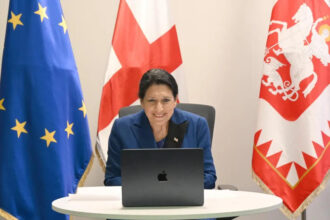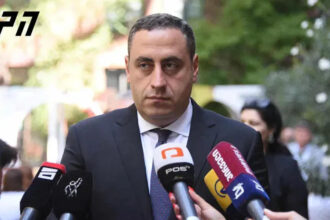The 6th edition of the Tsinandali Festival in 2024 once again proved the festival’s status as a must-visit for classical music lovers. Against the stunning backdrop of the Caucasus, this year’s chamber music concerts showcased a diverse group of world-renowned musicians, bringing together the intricacies of Baroque, the passion of Romanticism, and the virtuosity of the 19th and 20th centuries. Each performance was a testament to the powerful connection between performer and composer, creating unforgettable musical experiences.
The Romantic Masterclass with Julien Quentin (piano) and Edgar Moreau (cello) was a highlight of the festival. They opened with Felix Mendelssohn’s Sonata for Cello and Piano No. 2 in D Major, Op. 58, a masterpiece that is often overshadowed by Mendelssohn’s larger works. However, in the hands of Quentin and Moreau, it was a revelation. Moreau’s smooth cello lines soared through the melodic structures, while Quentin’s piano playing showcased both strength and finesse. Together, they brought out the dance-like quality of the Allegretto scherzando and the emotional depth of the Adagio.
Their next piece, Johannes Brahms’ Sonata for Cello and Piano No. 2 in F Major, Op. 99, further highlighted their artistic synergy. Brahms’ music demands both introspection and ferocity, and Moreau’s cello echoed the brooding, stormy skies of Brahms’ late Romanticism, while Quentin’s playing was a marvel of dynamic shading. The Allegro vivace was performed with fiery energy, culminating in a breathtaking finale with the final Allegro molto.
To end their set, the duo performed Niccolò Paganini’s Variations on One String, on a Theme by Rossini, showcasing Moreau’s astounding technical command. Despite the technical challenges, Moreau’s performance was playful and thrilling, providing a perfect conclusion to a concert that showcased a range of emotions and technical abilities.
Another highly anticipated performance was the collaboration between Joshua Bell (violin), Jeremy Denk (piano), Steven Isserlis (cello), Irène Duval (violin), Blythe Teh Engstroem (viola), and Pierre Génisson (clarinet). Together, they performed two monumental works: Johannes Brahms’ Clarinet Trio in A Minor, Op. 114, and Robert Schumann’s Piano Quintet in E-flat Major, Op. 44.
The Clarinet Trio was a triumph of intimacy and complexity. Génisson’s clarinet was both dark and velvety, capturing Brahms’ melancholic undertones while Bell and Isserlis navigated the rich textures with a profound understanding of the trio’s interwoven dialogue. The ensemble’s unity was evident, creating a mesmerizing performance.
The Piano Quintet was equally impressive, with each musician showcasing their technical prowess and musical sensitivity. Denk’s piano playing was particularly noteworthy, providing a solid foundation for the ensemble’s dynamic interplay. The final movement was a thrilling display of virtuosity, leaving the audience in awe.
Overall, the 6th edition of the Tsinandali Festival in 2024 was a resounding success, solidifying its position as a cultural landmark in Georgia. The performances were a testament to the power of music to transcend time and create unforgettable experiences. However, despite the festival’s success, it is a reminder of the government’s neglect of the arts, as the festival relies heavily on private funding. It is time for the government to recognize the importance of supporting the arts and invest in cultural events like the Tsinandali Festival.
Read More @ georgiatoday.ge













